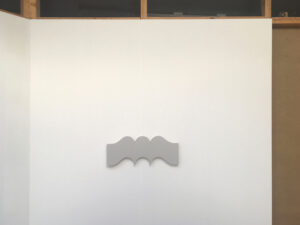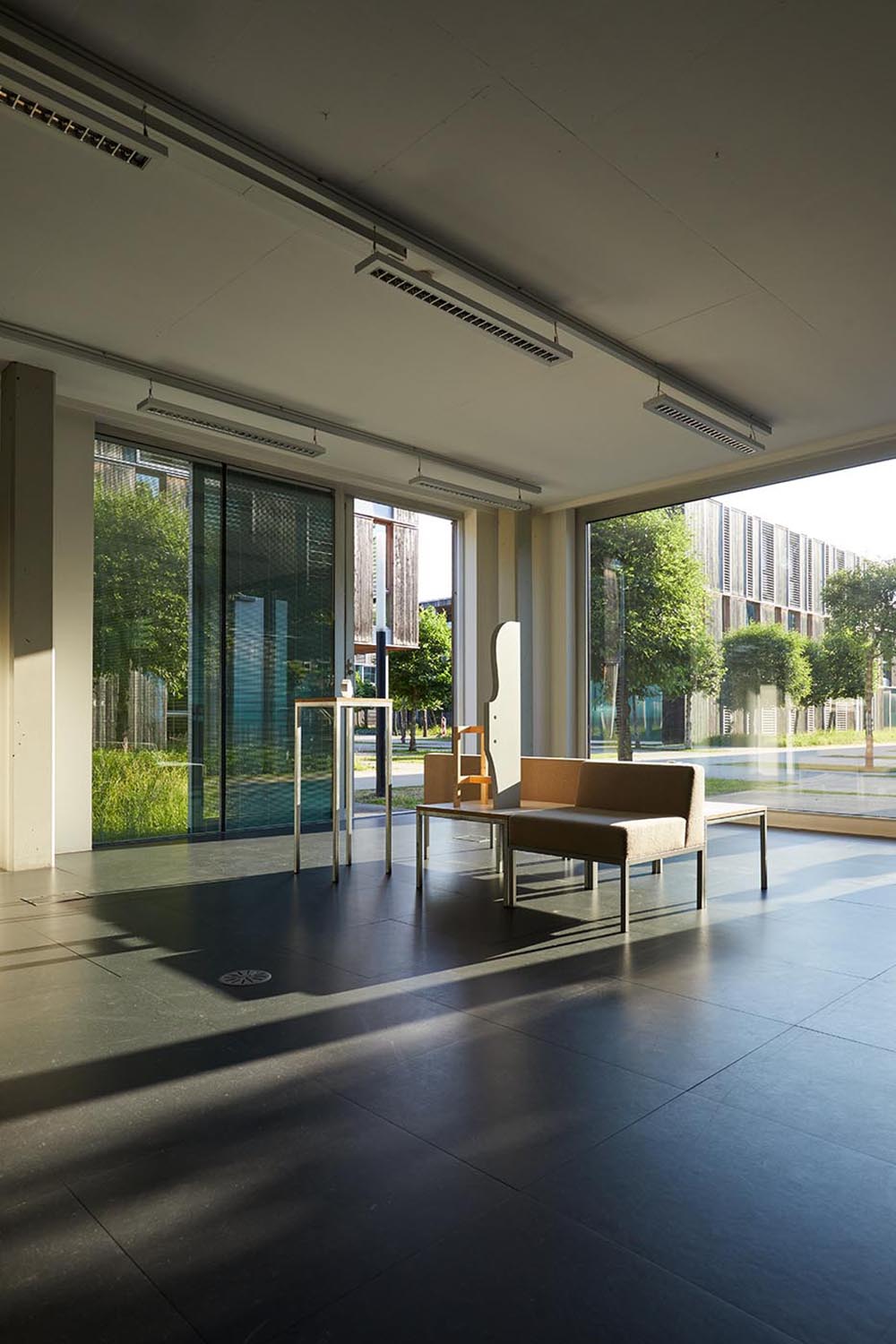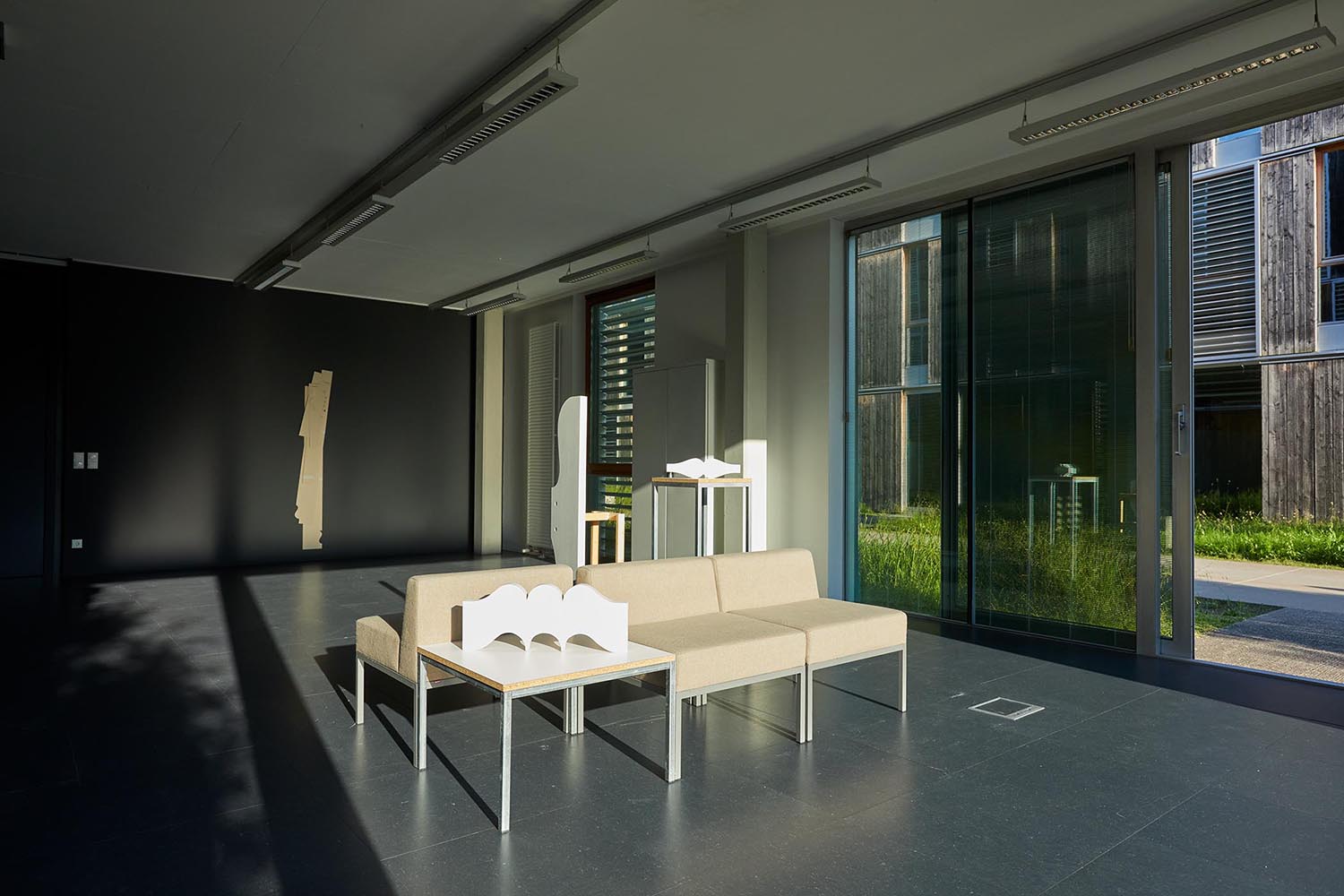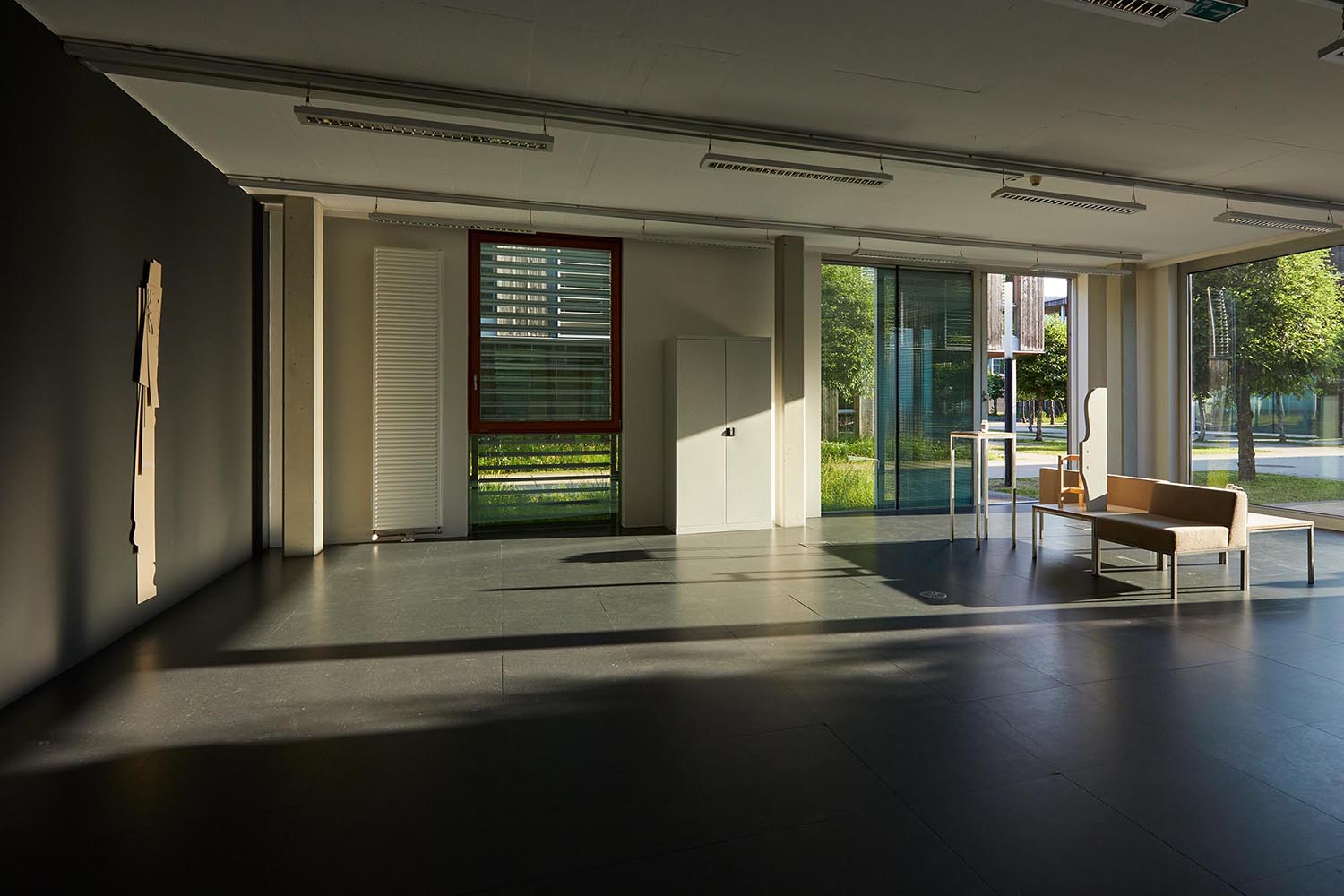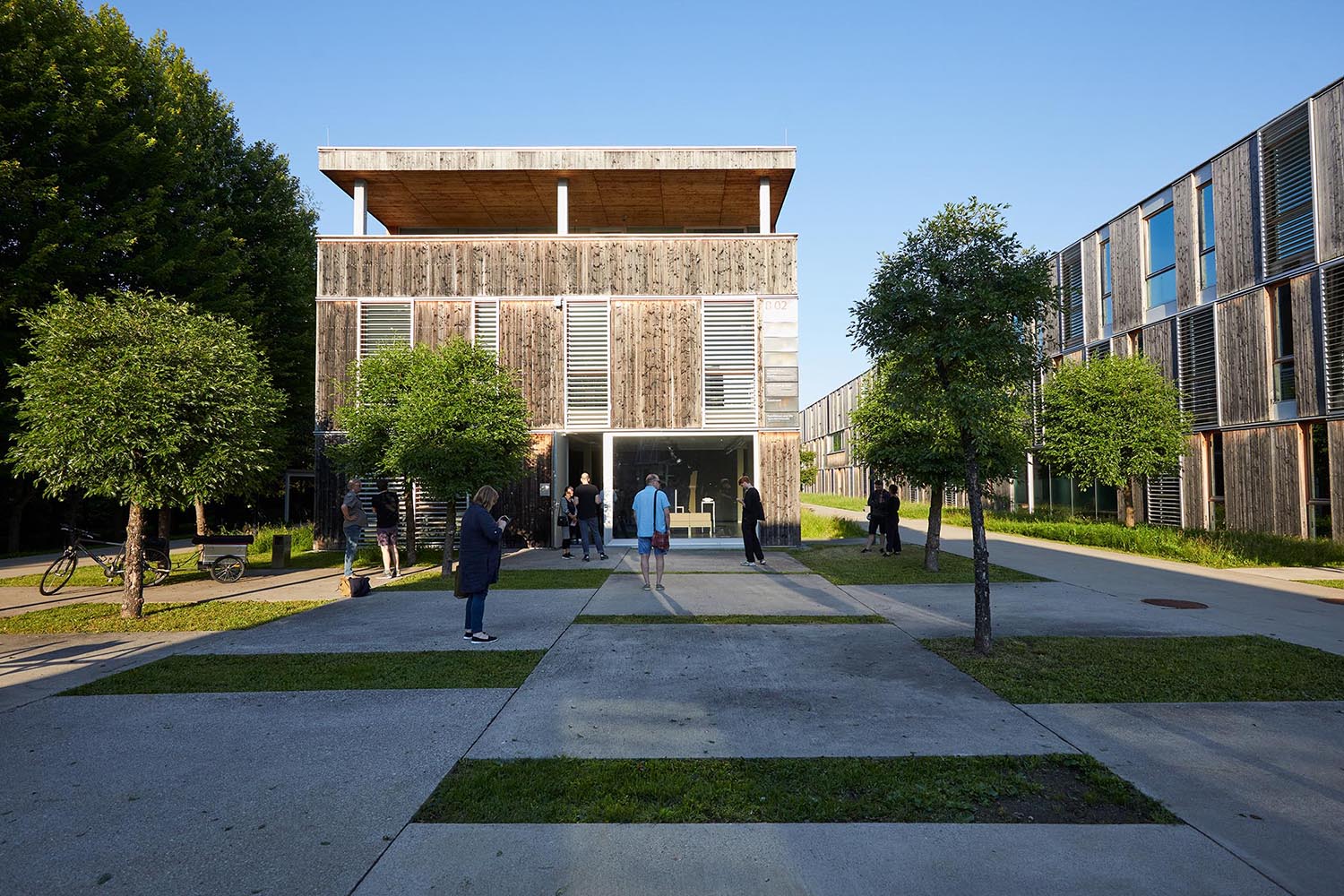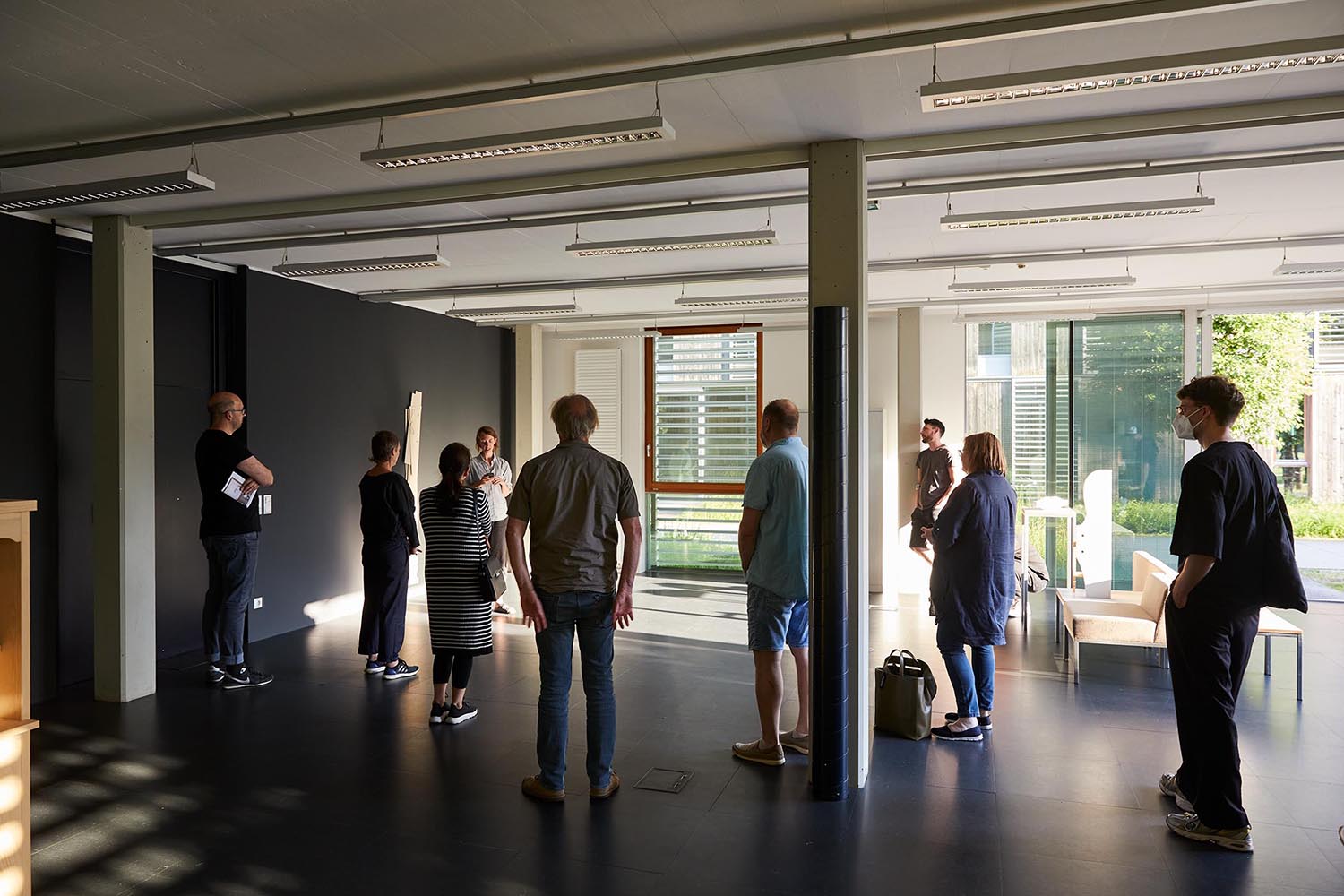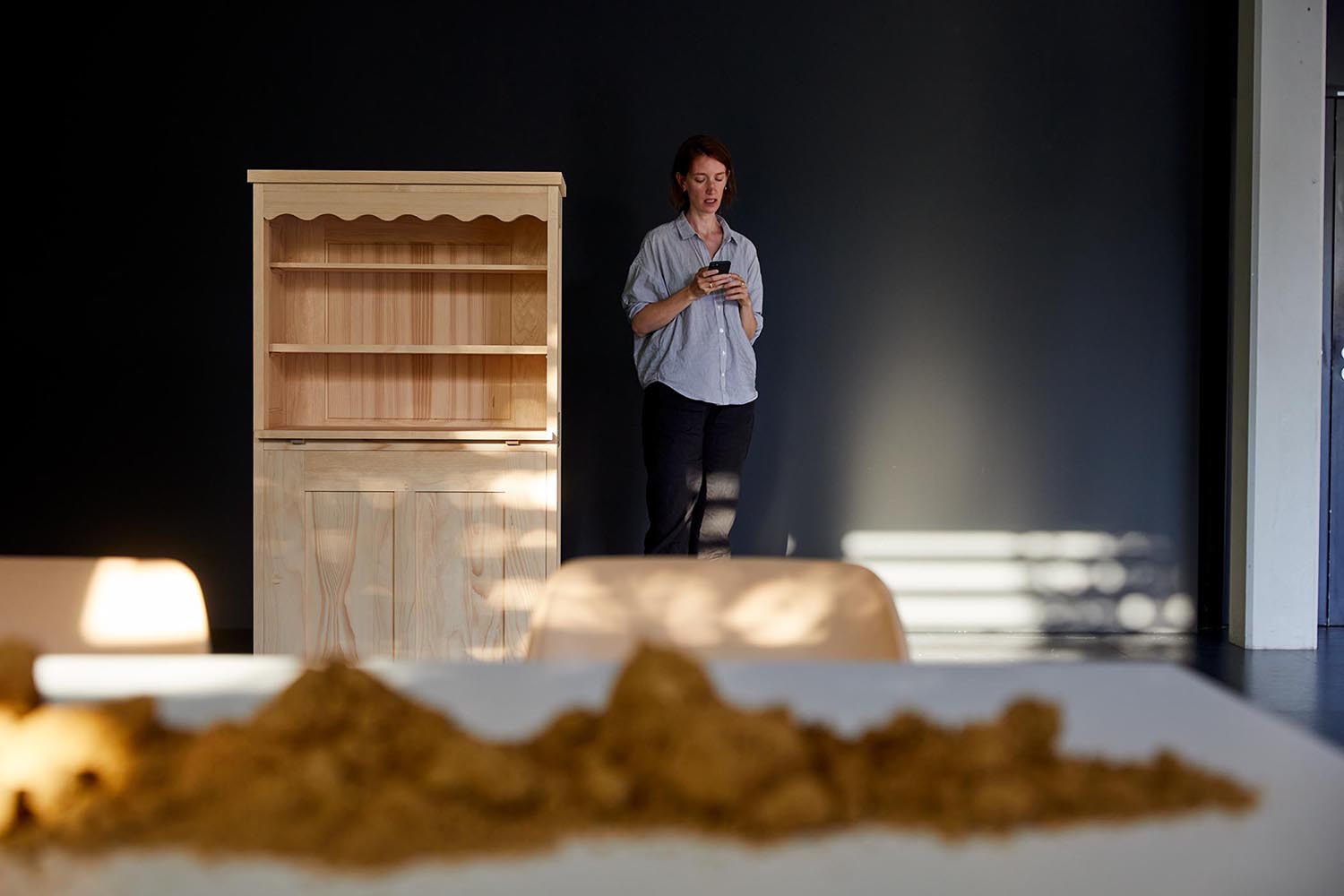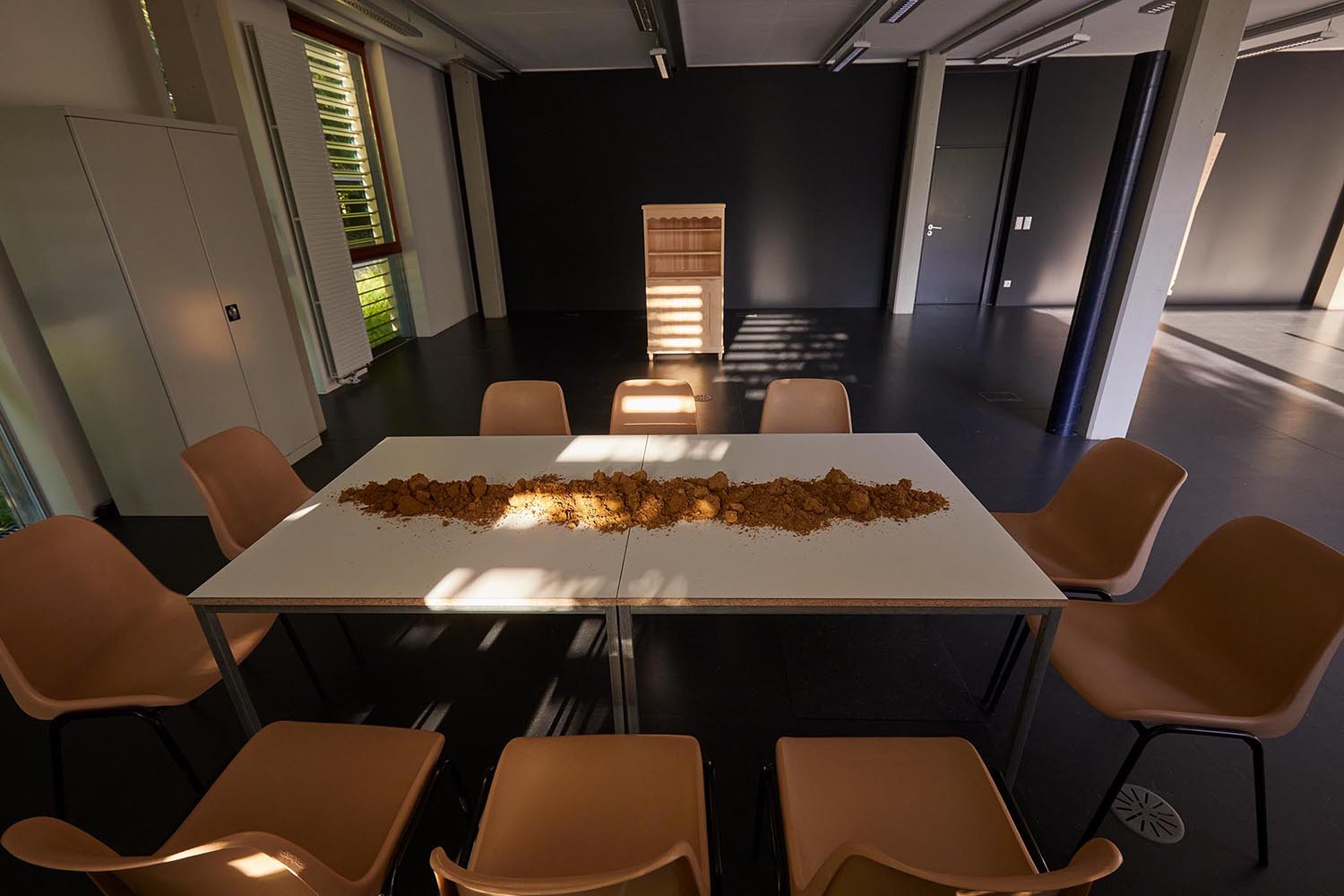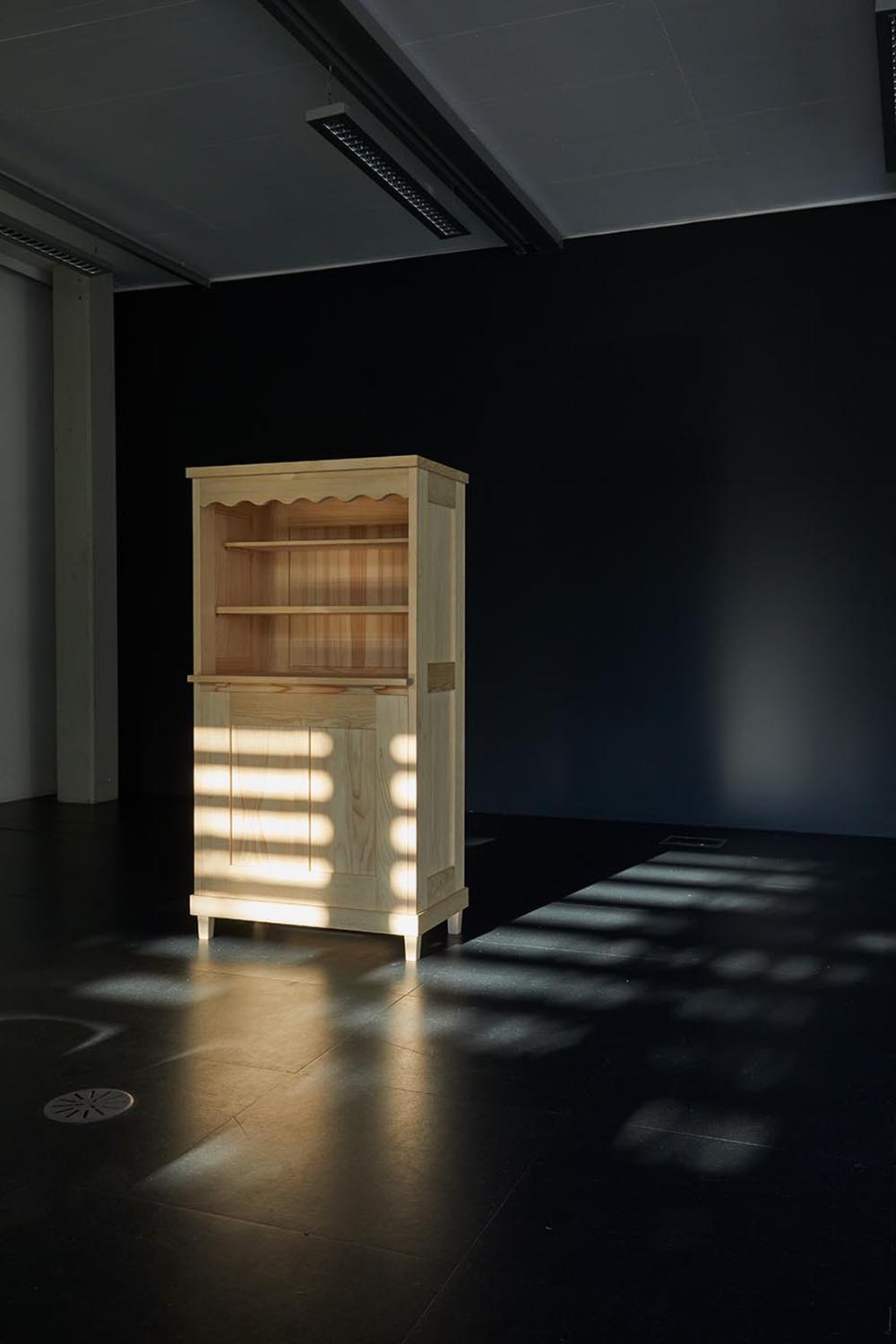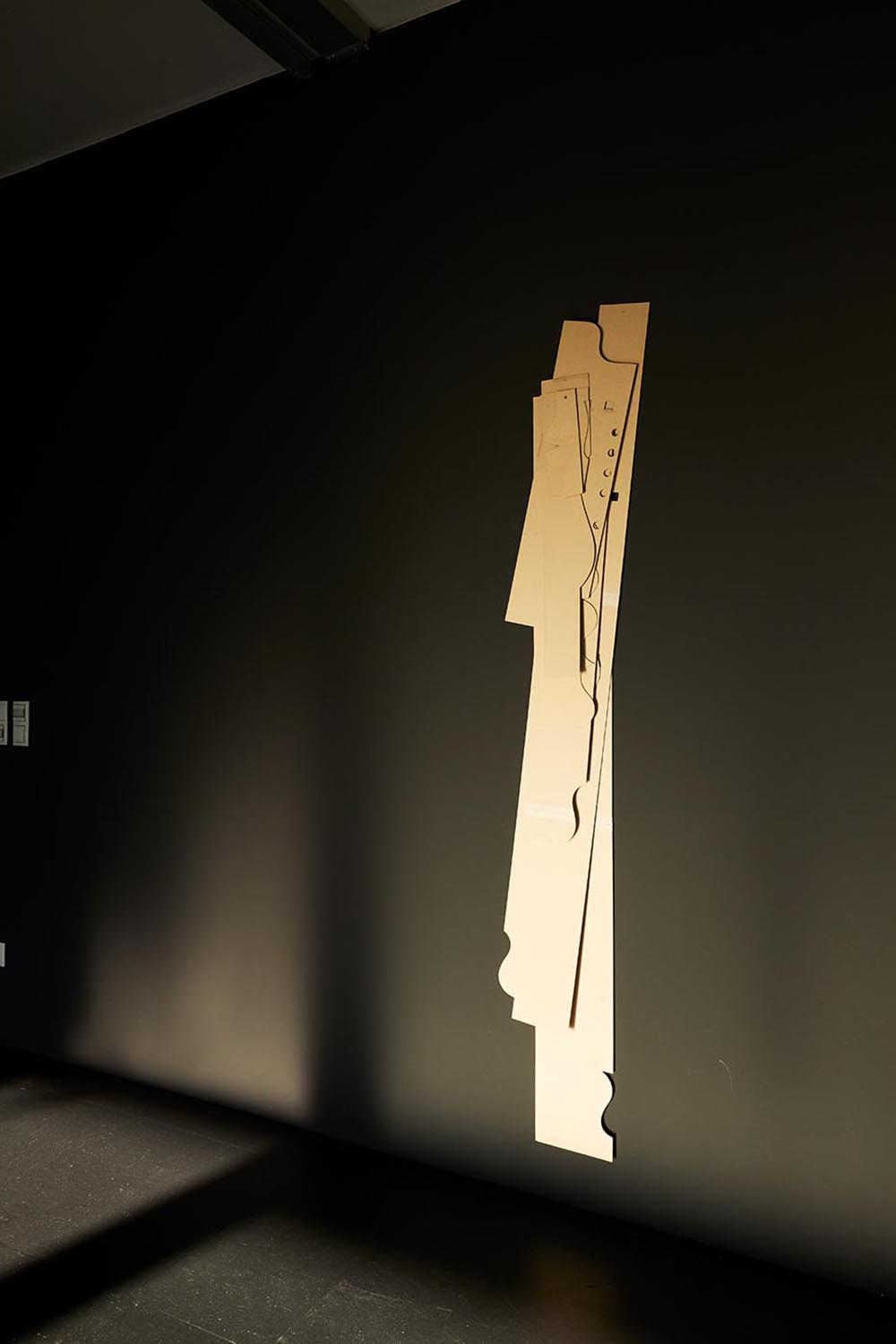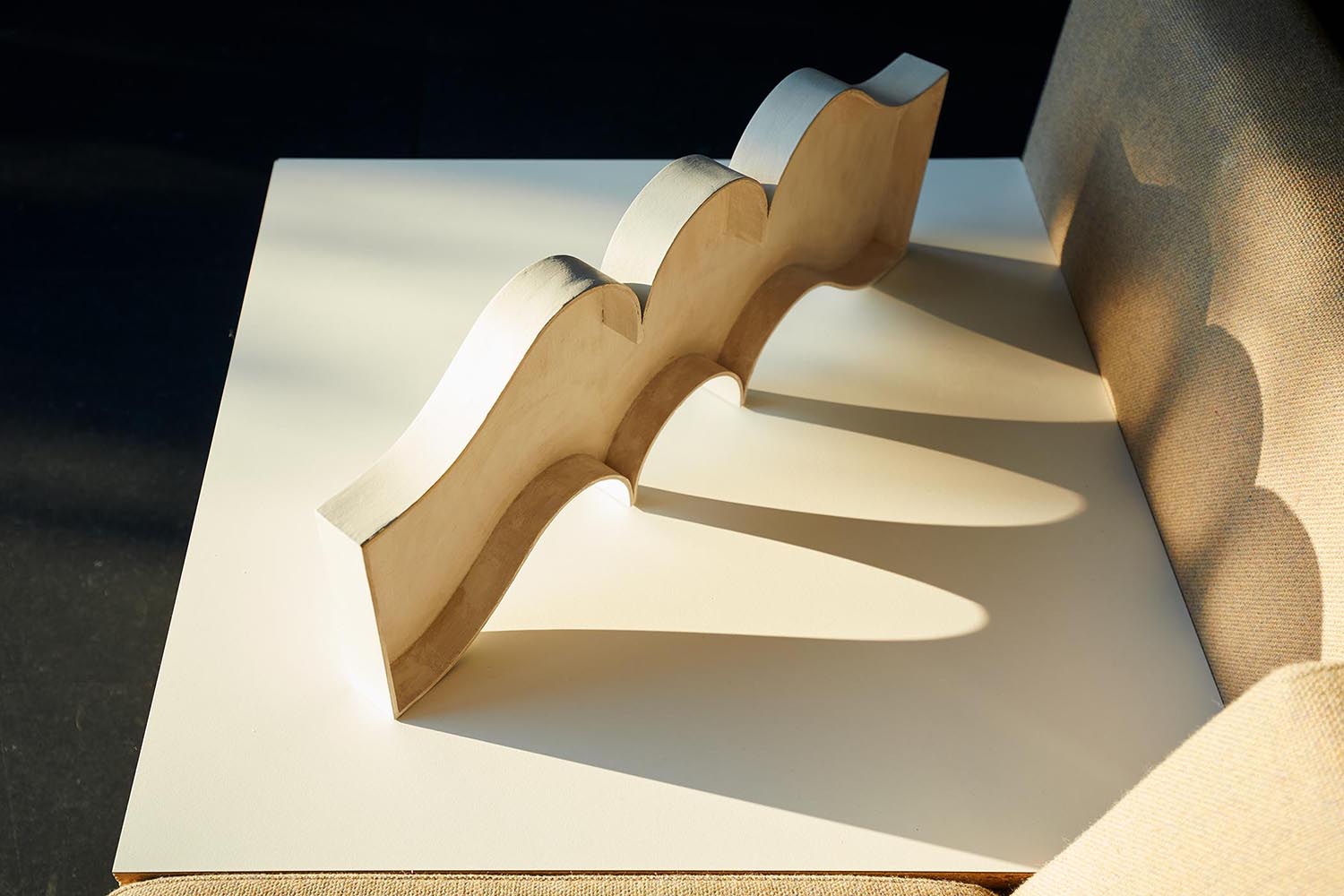Lecture Performance, June 14, 2022, 7 pm
Followed by a discussion with Sebastian Mühl
Open Space, from 5 pm
Historiography is an important departure point for Eva Engelbert’s artistic investigations into the material and spatial conditions of our society. Her sculptures, installations, and architectural interventions incite questions about whose history is being written and which alternative histories are passed on. She links the explicit political implications of her approach with topics centered around the intrinsic formal and aesthetic prerequisites of her artistic production.
Reflecting on her roles as a teacher at the University of Applied Arts Vienna and as an independent artist, Eva Engelbert recently developed a sculpture titled Einfacher Hausrat Fig. 44 (Simple Furniture Fig. 44, 2020) based on a student project for a so-called “food cupboard”. The design originates from a 1916 competition at the Imperial Royal Arts and Crafts School, the former name of today’s University of Applied Arts. The aim was to offer the population—battered by the repercussions of the First Word War—access to simple and affordable furniture. In a document of the Imperial Royal Austrian Museum of Art and Industry, the parameters of the call for proposals were defined as follows: “The designs were motivated by the idea of adopting a position against standard retail products to spur the betterment of war-torn areas; they are distinctive models for simple household use, for simple circumstances and needs, realized in the simplest way, yet characteristic of the materials and tools used. Any form of decoration unrelated to the nature of the matter is intentionally avoided.” Engelbert’s research into this competition and the resulting sculptural reappropriation focus on the entanglements between traditional and modern design, between national narratives and social design ambitions: “The 52 construction drawings compiled in the publication represent history in a nonlinear, many-voiced, and ambivalent way and thereby provide the material I am in search of for my own works and teaching,” says the artist.
Eva Engelbert casts a new light on her sculptural setting in the performative lecture Keep moving, also while standing at Kunstraum Lakeside. The text written by the artist employs fictional competition entries to take a speculative look into the future: Descriptions of the submitted household objects in everyday use and their materiality are combined with passages from the historical call for proposals, while parallels are drawn between the substitute materials used in the First World War and contemporary research on sustainable materials. Furthermore, the project deals with the dissolution of binarities and the imperative of empathy and care. Similar to how Kunstraum Lakeside makes recourse to a past program with its annual theme Future Perfect and assesses the topicality and relevance of the questions raised by the artists at the time, Eva Engelbert revisits the competition Einfacher Hausrat and its inherent social concepts to propose alternatives for the present.
Eva Engelbert (b. 1983 in Austria) lives and works in Vienna.
www.evaengelbert.com
